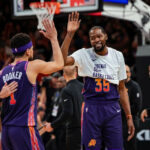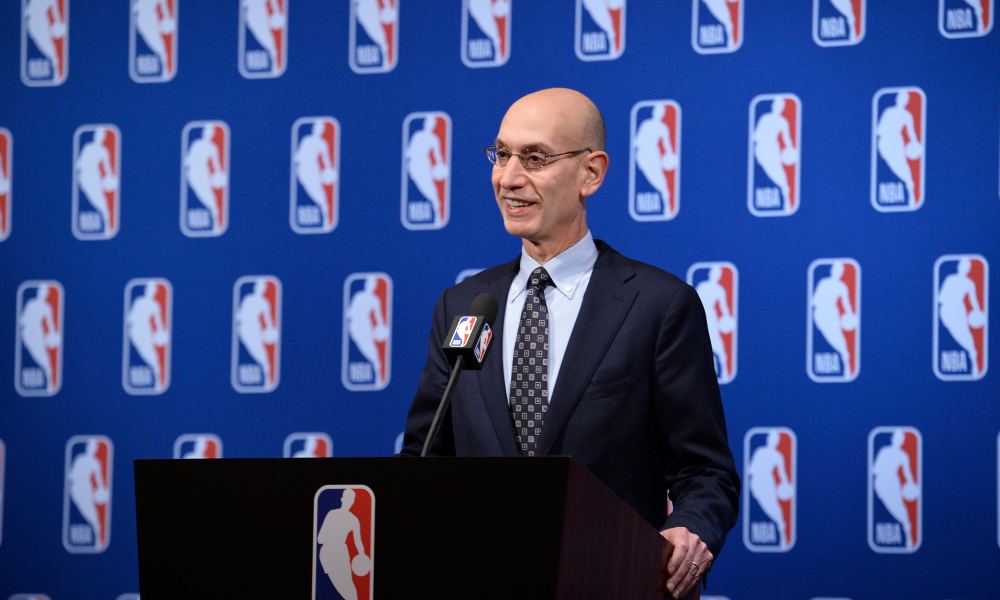The NBA and NBPA (National Basketball Players Association) have come to an agreement that the 2020-21 regular season will begin on December 22nd. This comes after speculation between the NBA owners and players deciding whether or not it would be best that the season would be 72 games or fewer perhaps in the 50 game range. The dilemma stemmed from the fact that there are players who are fresh off of deep playoff runs and as well as players who haven’t played since March. There are some bigger financial implications the NBA owners would have had to deal with had the regular season been decided upon fewer than 50 games.
The CBA (Collective Bargaining Agreement) is a 50/50 split of all the revenue generated throughout the season between the owners and the players. The NBA spent almost 200 million dollars on the bubble alone. Even with a 72 game season being played, there’s a loss of 4 billion dollars in ticket revenue where initially there was a projected season income of 9.8 billion if there was no pandemic. The pandemic occurring dropped the projected revenue to 8.3 billion. The 72 game season is very vital because it secures all the RSN fees.
The NBA escrow is also another revenue factor that plays into the NBA players’ income. The NBA escrow is a measure where the NBA players are guaranteed between 49%-51% of all basketball-related income and the NBA withholds 10% of that. For example, for someone like Celtics rookie guard Carsen Edwards, who’s set to make $1.5 million dollars in 2021, the escrow could immensely impact his overall income potential. The NBA owners have flirted with the idea of setting the escrow at 40%.
Due to the fact that owners and players were undecided on when the season should start, that means the projected amount of income the NBA would be generating would vary as well. Throughout the season, players put in 10% of their income into an escrow account. If the total salaries end up less than the projected income generated because the NBA made less money, the escrow gets split among all the players that make up the difference. If the revenue generated is greater than what was projected, the escrow would be paid out to the NBA owners. So if the escrow is for example set at 40%, then Carsen Edwards would be making $600K.
Obviously, players like Lebron James, Steph Curry, and other top-dollar players who cash in on other endeavors and endorsement deals can still provide for their families and then some. But guys such as Edwards, who are still scratching the surface financially, can be impacted especially if they’re putting down substantial large payments on condos and vehicles once they get that first NBA paycheck. The point of an escrow account is so that both sides; the players and owners, get their equal piece of the pie. There are still details and negotiations to figure out going forward touching upon health and safety protocols that need to be settled, but we can all agree this is a step in the right direction.
Author Profile

Latest entries
 NBAMarch 27, 2024Nass’ Trip Around the Association Vol. 3, Page Fifteen
NBAMarch 27, 2024Nass’ Trip Around the Association Vol. 3, Page Fifteen NBAMarch 8, 2024Nass’ Trip Around the Association Vol. 3, Page Fourteen
NBAMarch 8, 2024Nass’ Trip Around the Association Vol. 3, Page Fourteen NBAJanuary 24, 2024Nass’ Trip Around the Association Vol. 3, page Thirteen
NBAJanuary 24, 2024Nass’ Trip Around the Association Vol. 3, page Thirteen NBADecember 12, 2023Nass’ Trip Around the Association Vol. 3, Page Twelve
NBADecember 12, 2023Nass’ Trip Around the Association Vol. 3, Page Twelve

